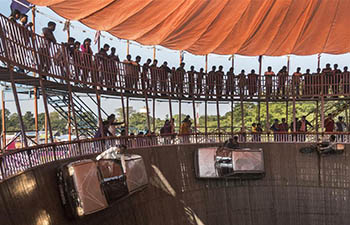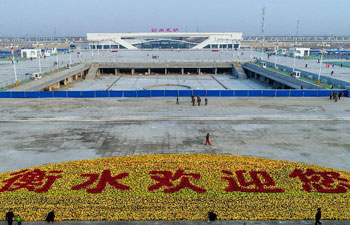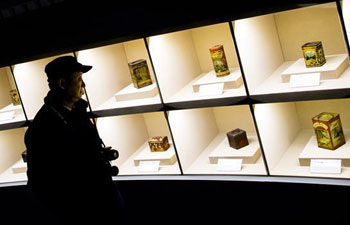HAVANA, Dec. 27 (Xinhua) -- Cuba's state-run telecommunications company Etecsa has been inundated with hacking complaints from users of its public Wi-Fi hotspots, local media reported on Wednesday.
Etecsa said it registered 672 complaints up to November, mainly from users whose credit was stolen by hackers tapping into their accounts while they were surfing the net at a park, plaza, shopping center or other public Wi-Fi enabled zone.
Average Cubans have no private internet access at home, and must resort to these hotspots to check emails and browse the web.
Jorge Sacre, head of the company's anti-fraud unit, said "small illegal Wi-Fi points," otherwise known as fake APs, or access points, set up near hotspots by con artists were to blame for the rash of stolen credit.
He also blamed users, saying they could be more careful.
"People lend their mobiles and passwords, they share their browsers, they use so-called 'connectify' (hotspots) to make connecting cheaper, they accept (balance) transfers from strangers ... all of that provided swindlers with an opportunity," said Sacre.
However, he admitted that when Etecsa first began to offer public Wi-Fi in 2015, it did so without a valid security certificate "in order to not keep postponing a service the people were clamoring for."
The company has tried to compensate users, paying a total of 5,300 U.S. dollars so far in reimbursements for "unjustified consumption or transfer of balance."
An estimated 4 million Cubans access the Internet, and the vast majority do it via 505 Wi-Fi hotspots set up by the company.
The service is not free: an hour costs one dollar.

















